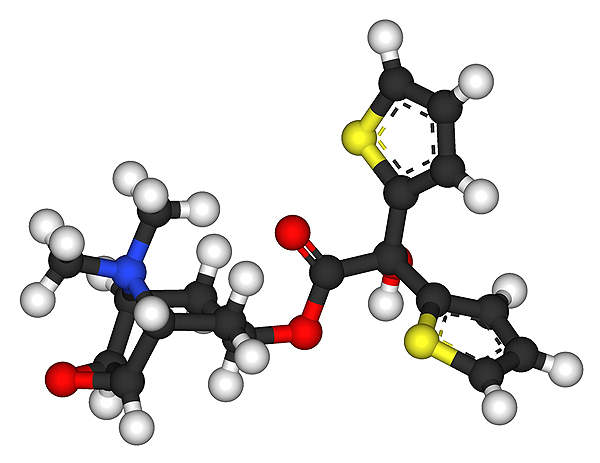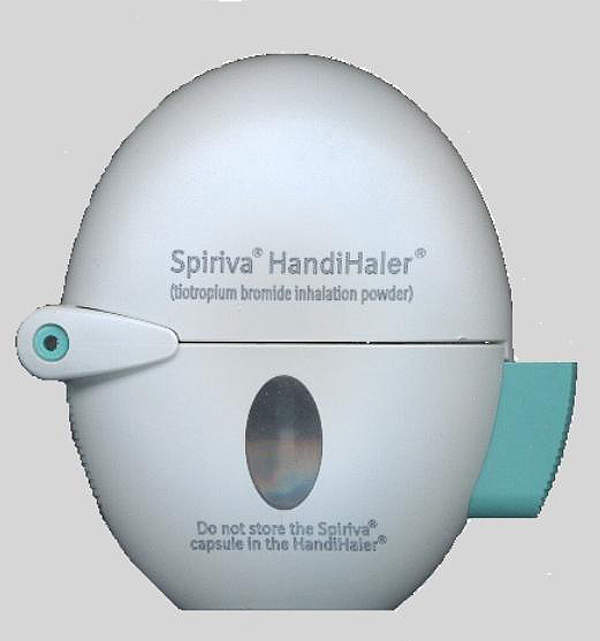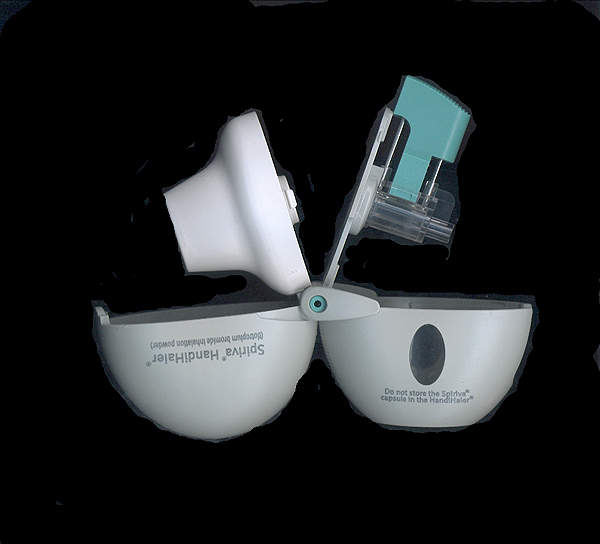Spiriva is an anticholinergic drug targeted at chronic obstructive pulmonary disease (COPD). It contains tiotropium bromide as the active ingredient and is administered as an oral medication, through the unique HandiHaler inhalation device.
The drug was discovered and developed by Boehringer Ingelheim. It was approved by the US Food and Drug Administration (FDA) in January 2004. Spiriva is co-promoted in the US by Boehringer Ingelheim and Pfizer.
Chronic obstructive pulmonary disease (COPD) details
COPD is a lung condition which leads to difficulty in breathing. Each lung contains bronchial tubes, or airways, which have tiny air sacs at the end. The airways or bronchioles and air sacs are elastic structures which expand as air is breathed in.
Air breathed in by a person passes into the lungs, which absorb the oxygen. The oxygen passes through the air sacs and then into the blood. In people suffering from COPD, bronchial tubes and air sacs lose their flexibility. The airways also produce more mucus, which blocks the lungs.
COPD includes emphysema, chronic bronchitis and asthma. Major symptoms of COPDinclude a cough with mucus, respiratory infections, wheezing, shortness of breath and fatigue. Cigarette smoking is the major cause of COPD. Exposure to irritants, such as pollution, chemical fumes or dust can also lead to COPD.
It is estimated that about 210 million people worldwide are living with COPD and it is the third leading cause of death. There is no cure for COPD but its symptoms can be cured using inhalers, anti-inflammatory medications and steroids.
Spiriva – tiotropium bromide (antimuscarinic agent) capsules
Spiriva’s active substance tiotropium bromide is an antimuscarinic agent with an affinity towards M1 to M5 muscarinic receptors. It works by inhibiting M3 receptors known to cause bronchitis.
Spiriva is available as capsules containing tiotropium bromide in dry powder form mixed with lactose monohydrate. The HandiHaler device is used to inhale the powder contained in the capsule. The inhalation device delivers the powder at the rate of 20l/min.
Clinical trials involving the anticholinergic drug from Boehringer Ingelheim
The clinical development programme for spiriva included more than 25,000 patients. Phase III trials of spiriva included two one-year placebo-controlled trials, two one-year active-controlled trials and two six-month placebo controlled trials.
The studies recruited 2,663 patients, aged 39 to 87 years. The most common adverse reaction in the trials was dry mouth.
Two additional trials, including a six-month randomised placebo controlled study in 1,829 patients, were conducted. The second study was a four-year trial, called Uplift, carried out in 5,992 patients.
The trial showed that spiriva improved lung function and quality of life for patients. The patient population and adverse reaction were similar to that of the one-year and six-month trials.
Based on the results of the Uplift study, the FDA approved spiriva for reduction of exacerbations in patients with COPD.
In March 2011, results from a new one-year study, POET-COPD, were announced. The study was conducted to compare the affects of Salmeterol with spiriva in reducing COPD exacerbations (acute worsening of COPD symptoms). It recruited 7,376 patients with moderate to severe COPD. Results from the study indicated that spiriva was superior in reducing COPD exacerbations, compared to Salmeterol.
Marketing commentary for the high-selling COPD drug spiriva
Spiriva is one of the biggest selling products of Boehringer Ingelheim. It is the only long-acting anticholinergic available on the market. Since its launch, sales of the drug have continuously increased. For the first nine months of 2011, spiriva registered sales of $3.45bn.
The first patents for spiriva are set to expire in December 2012 along with the exclusivity period. Some patents for the drug, however, extend until March 2027. Spiriva is expected to face competitionfrom generic version following its patent expiry.
A generic version, however, is expected to take some time to be available in the market. A major advantage for spiriva is the patented inhaler used along with the drug.
In addition, Boehringer Ingelheim is developing combinations of spiriva with other COPD treatments, such as olodaterol. Such combination treatments are expected to extend the life of spiriva.





